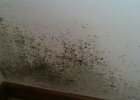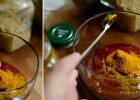Every major beverage company in the world has started focusing on promoting healthy products and Coca Cola is certainly not an exception. This beverage corporation is especially proud of their VitaminWater and they advertise it as a very healthy and incredibly hydrating beverage.
According to the Coca Cola Company, this drink also lowers the chances of developing eye diseases, protects us from chronic diseases, supports our bones and joints and improves our immunity, too. But, it turns out that all these promises are false.
A recent article published in the reputable Mat Hoffman Post, written by John Robbins, PhD, MD, has debunked these claims.
According to Robbins, VitaminWater is nothing more that sugar-water with traces of synthetic vitamins. What is even worse is that the quantity of sugar found in this beverage is relatively high.
One regular bottle of VitaminWater comes with about 33 grams of sugar which makes this beverage closer to a soft drink family than to a healthy drink family.
Here are the ingredients found in VitaminWater with orange-orange flavor:
Cane sugar, crystalline fructose, reverse osmosis water, less than half percent of: potassium phosphate, citric acid, calcium lactate and magnesium lactate which all act as electrolyte sources; gum acacia, vitamin C, natural flavors, vitamin E or alpha-tocopheryl acetate, vitamin B3, glycerol ester of rosin, beta-carotene, calcium pantothenate, vitamin B12, sorbitol, modified food starch and vitamin B6.
As we have already mentioned, the level of sugar in this beverage are very high.
A 500 ml bottle comes with 27 grams of sugar or 8 teaspoons of sugar!
Crystalline Fructose
The process of production of this ingredient is very simple – they use corn syrup enriched with fructose and let the fructose crystallize. To be more precise, crystalline fructose comes from corn syrup or corn syrup enriched with fructose. About 99% of his fructose is made of fructose assay which is way more than the amount found in high-fructose corn syrup. It is very likely that this fructose includes traces of chloride, lead, arsenic and some other heavy metals.
Synthetic Vitamins
It is good to know that synthetic vitamins are practically worthless for our health because they frequently represent synthetic derivatives that are not promptly dissolved, absorbed and used by the body. These vitamins are processed in a special way. In most of the cases, they are produced at extremely high temperatures and include certain artificial and/or harmful ingredients like preservatives, dyes, sugars, coal tars, starch and many different additives.
According to the Organic Consumers Association, chemically-produced vitamins should be avoided because they include coal tars, nicotine and even petrochemical derivatives. In addition, certain vitamins like vitamin E and A cannot be dissolved in water. This means that the body is unable to get rid of the extra amount which ultimately means that taking excessive amounts of these vitamins can lead to serious health issues. This is a toxic accumulation that can damage our health. In the end, it was proven that synthetic vitamins are extracting nutrients like magnesium and calcium from the bones and other body parts.
Artificial Colors
Yes, foods today are still being colored with artificial colors and this is a serious issue for adults and children. The Center for Science in the Public Interest claims that artificial colors include chemicals which can cause cancer and the majority of these colors can lead to allergic reactions. They also say that the three most popular dyes in food coloring are yellow 6, yellow 5 and red 40 and they all contain substances related to cancer. In addition to that, another popular dye known as red 3 was listed as carcinogen by the FDA years ago, but it is still used in drinks and foods.
Drinking regular water is the best option.
We should always keep in mind that the hydration of our body is very important and drinking pure water is the best choice!
Source: www.hlfteam.com




